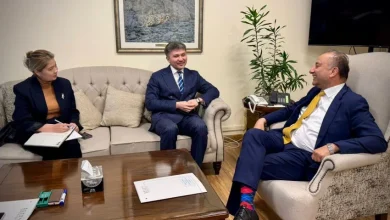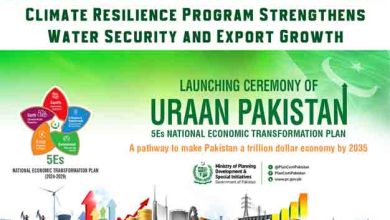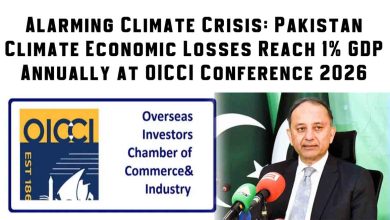UK to fund seven climate change projects in Pakistan amid growing environmental challenges
Each project will get expert guidance on finance, gender equality, and social inclusion to attract investor funding
The United Kingdom announced its commitment to support seven climate change initiatives in Pakistan, including the development of solar farms and the use of artificial intelligence to reduce emissions.
The British High Commission revealed this initiative on Friday, highlighting Pakistan’s vulnerability to extreme weather events, such as the devastating floods of 2022 that claimed over 1,700 lives and displaced millions.
Among the funded projects are plans to construct floating solar farms, develop AI-driven platforms for emission reduction, and convert agricultural waste into clean energy.
The support will be channelled through the Climate Finance Accelerator (CFA), a £12.6 million technical assistance program backed by the UK government’s International Climate Finance commitment to assist developing countries in addressing climate-related challenges.
Each project will receive specialised guidance on financial matters, gender equality, and social inclusion to enhance its proposals and attract investor funding.
Key initiatives include a 500MW floating solar project at Keenjhar Lake aimed at generating clean energy and reducing dependence on fossil fuels.
Additionally, the Quintech Sciences initiative will focus on eco-friendly and health-conscious products while a biochar project will turn agricultural waste into a stable carbon-rich substance, helping to improve crop yields and decrease reliance on synthetic fertilizers.
The Pakistan Environment Trust project will transform agricultural waste into a clean energy source for industrial use, alongside the establishment of a facility to produce Recycled Polyethylene Terephthalate (R-PET) resin, which aims to reduce plastic dependency and lower carbon emissions.
British High Commissioner Jane Marriott praised the diverse range of projects, stating that they exemplify Pakistan’s leadership in addressing climate issues.
“This initiative showcases the UK’s partnership with Pakistan in developing local solutions for significant challenges,” she remarked. “I am eager to see these proposals gain traction on the international stage and wish them great success,” she added.







